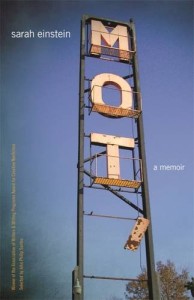Hello, friends. WordPress tells me there are more than 3000 of you who subscribe to this blog, which has been running, on full and on empty, for more than a decade. I’m currently working on a bunch of new projects I think many of you might be interested in, and I want to make sure you know about them. This won’t be a complete update on everything I’ve been up to since 2016 (which includes a global move, a career change, and a divorce). That will have to wait for another time, another space.
1. This blog will for now be preserved as my Israel chronicles, so to speak ;). I’m working on a new professional site over at jenmaidenberg.com which will likely house any new creative writing.
2. I launched a Patreon page for my current research and writing about dreams, memory, mental time travel, love, and healing. You can subscribe for as little as $8/month and get access to monthly audio updates (called “Dreaming Out Loud”) about the novel research I’m doing as it relates to the therapeutic use of dreams, storytelling, music, and memory! Or, join at any level because you want to support an independent writer whose writing matters to you! Patreon is about supporting writers, artists and other creators — just because, not in exchange for a good or service–so that they have to hustle less, and get to create more.
The new #creatoreconomy recognizes and acknowledges how art is healing and deserves to be valued more in our economy. Don’t you think? I heard about Patreon via subscribing to musicians, artists, and healers I’ve believed in or followed for a long time on free social media channels, but never bought from. In general, I’m trying to get into the habit of donating to creators or buying from them at whatever level is comfortable for me. To that end, I’ll also be sharing on my own channels the art and writing of creators whose work in the world I want to amplify. Stay tuned for more on that, too!
3. I’ve been publishing for the last seven years on Medium. You may enjoy reading the content there: lyric essays, poetry, dream exploration. Claps and reads on my medium articles = money for me = less hustling for gigs = more ease = more contribution and acts of service on the behalf of others. I’m aiming big: For years I’ve been an activist for healing. Now I want to add to that activism for creators. Your support of my creative work and research allows me the time and energy to focus on that and not constantly striving for the next freelance job to pay the bills. Future Me is deeply grateful for your support.
That’s it for now.
Except for one thing: It’s not all about me. In fact, it’s not about me at all. If it wasn’t for you, there’d be no Me. Your listening of me, your reading of me, your showing up as a reflection of me and for me in whatever way you do or once did, is what supports and solidifies Me being Me.
Drop a comment below if you’re up to a new creative pursuit you want me to share, amplify or check out. Or if you’ve been plugging along with a blog I used to support back in the 2010s and think there are some posts there I’d like. Link below.
Sending you love across time and space!
Jen




 On a day when my sadness and despair for
On a day when my sadness and despair for 
